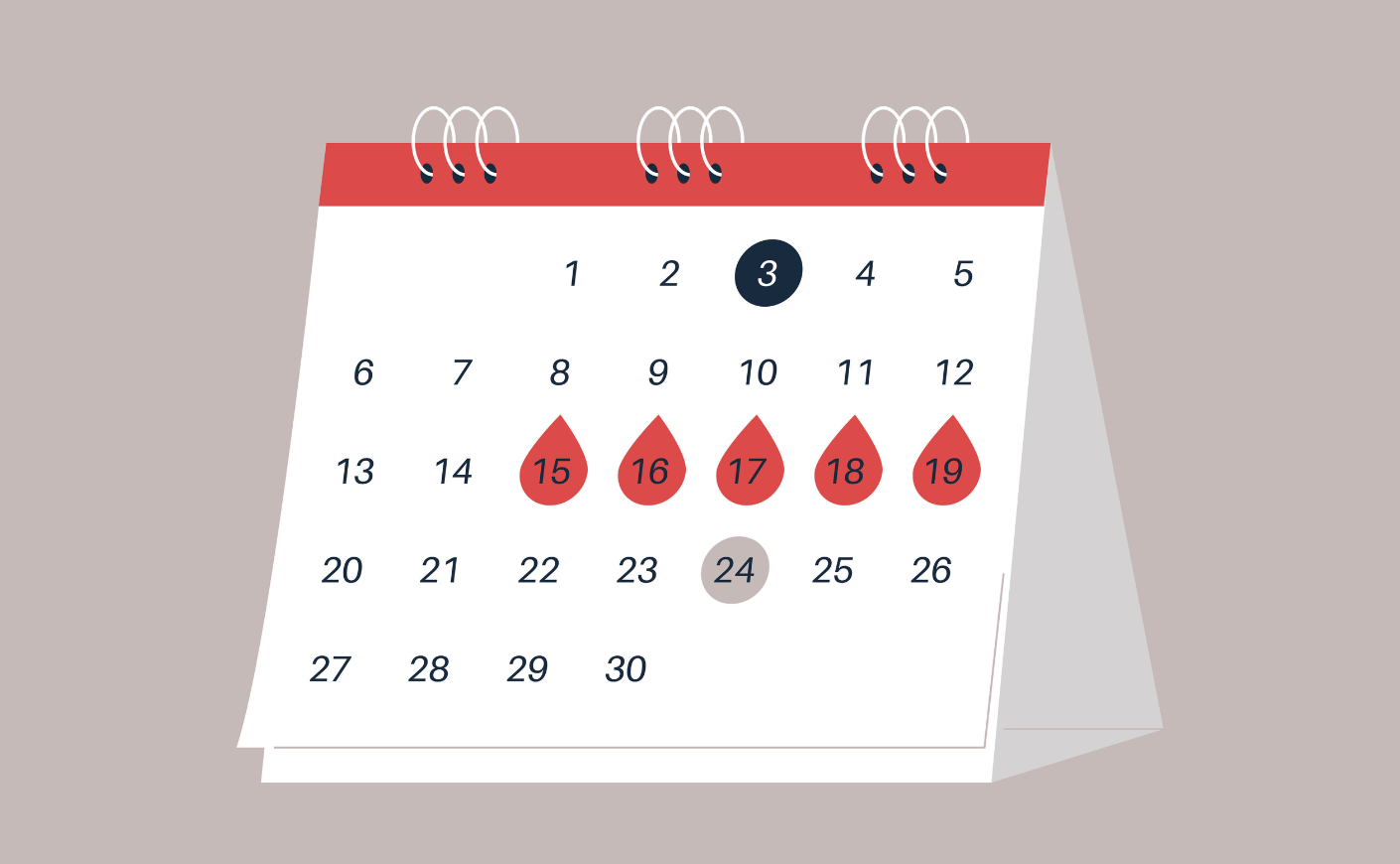If you used to get a kick out of having your period the same week as your college roommate, you’re not alone — syncing up with your friends probably felt like a rite of passage. But those cycles might not have been as aligned as you thought: As it turns out, there’s actually no scientific evidence that cycle-syncing happens.
Still, period myths like this one have stood the test of time, getting passed down like folklore from generation to generation. Whether you’ve had your period for decades or you’re past menopause, you might be surprised to learn that some of the period “facts” you thought you knew are actually fiction. That’s why we spoke with Melisa Holmes, MD, a board-certified ob-gyn, and Trish Hutchison, MD, a board-certified pediatrician, to help clear up some of the most common period myths and misconceptions that are still making the rounds today.
As the co-creators of Girlology, an app which provides an on-demand “guide to girlhood” for girls and their caregivers, Dr. Holmes and Dr. Hutchison have a wealth of information on the old monthly visitor. So buckle up, because no matter how much you may think you know, there’s always something surprising and new to learn about the magical world of menstruation.
Period syncing is a myth
If you and your besties spent weeks in college bonding over shared period pain, you likely determined it was because your periods had “synced up.” “In 1971, a college research student named Martha McClintock reported that over time, her close friends and dorm-mates would eventually end up getting their periods on or around the same day as each other,” explains Dr. Holmes. In her study, McClintock concluded that when women spend a significant amount of time together, their menstrual cycles may become synchronized. But since this initial report, no other researcher has been able to reproduce McClintock’s results or provide any additional evidence for her theory…and yet the myth of synchronized periods has endured for more than half a century.
Dr. Holmes understands why there’s an appeal to the idea: “Any woman who menstruates regularly is going to have her period about 25 percent of the time, and since cycle lengths vary, there’s inevitably going to be some overlap with other women,” she explains. When women are close, they tend to share details of their lives together, including commiserating over their periods. But as Dr. Holmes reasons, “You’re never going to approach a friend and say, ‘I’m not having my period right now.’ We’re much more likely to look for similarities among people we spend a lot of time with, so this is a myth that’s easy to believe.” As far as period myths go, this one is pretty harmless, so if you want to keep telling yourself you’ve synced up with your gal pals, you’re not hurting anyone.
“Period poop” is real
If your period is frequently served with a side of tummy ache, it’s no coincidence. “Your period happens when the uterus contracts to shed the endometrial lining, a process which is triggered by a hormone-like substance called prostaglandin,” explains Dr. Hutchison. “This is the reason why some women feel cramps in their abdomen and lower back, but fluctuating prostaglandin levels also affect the gastrointestinal tract and can cause stomach issues.” So if you have increased bowel movements, diarrhea, bloating, or even constipation during your period, you have prostaglandins to thank.
You can, in fact, get pregnant on your period
If you’ve ever relied on this practice as a form of birth control, get ready for a rude awakening. “Some people seem to think that if you have your period, you’re not ovulating,” says Dr. Holmes. “But we can only predict ovulation in retrospect, and even if you’re diligently monitoring ovulation, it may vary by a few days.” So for some women, particularly those with a shorter menstrual cycle, ovulation may occur before the end of their period. “There can absolutely be overlap in the time when menstruation happens and pregnancy can occur,” says Dr. Holmes. “I've been a gynecologist for over 20 years, and I’ve seen plenty of pregnancies that occurred when somebody had sex on their period and didn't think they could get pregnant.”
Your period shouldn’t smell bad
Or to be more specific, it should just smell like blood. “I often have patients come in complaining about menstrual odors,” says Dr. Hutchison. “But if there’s a strong odor coming from your pad, it’s not actually your period causing the smell: It’s the bacteria from the sweat and oils in the groin area.” We hate to be the bearers of bad news, but the groin is just like any other area of the body where the skin naturally creases — when it gets warm, it starts to sweat, which can lead to body odor. Luckily the fix is pretty simple: Change your period product regularly, and regularly cleanse the vaginal area with water and gentle soap.
Pads and tampons are equally hygienic, as long as you change them regularly
When you’re choosing a period product, rest assured that you can base your decision entirely on what is most comfortable for you. “It’s equally safe and equally sanitary to use a pad or a tampon, as long as you’re changing them every four to eight hours,” says Dr. Hutchison.
The secret to stain-free underwear is knowing your tampon absorbency and your pad size
If you’re a tampon user, you know they’re available in various absorbencies, ranging from light to ultra, and you can switch things up depending on your flow. But if you think pads are a one-size-fits-all product, you might be one of the 60 percent of women wearing the wrong size pad. “Most pad leaks happen because of sizing issues,” says Dr. Hutchison. Just like you would with a tampon, you should switch up the absorbency level of your pad depending on your flow. Always menstrual pads are available in five sizes, and they’ve even got a handy little chart to help you find the perfect pad to fit both your body and your absorption needs. Since pads are designed to fit in your underwear, Always offers pads that fit sizes XS to XL+ to help keep your days and nights leak-free while ensuring a comfy and seamless fit.
Whether all of these tidbits were totally new to you or you’re the reigning champion of Period Jeopardy, the most important thing to know about your period is when you should see a doctor. “If you’re missing periods, spotting between cycles, experiencing abnormally high flow, or frequently see large clots during your period, those are all warning signs that you should see a doctor,” says Dr. Hutchison. “And we cannot stress this enough: Your period should not cause pain that stops you from doing your daily activities. For generations, women’s period pain was dismissed as unimportant, but that is one myth we are finally putting to bed. Find a doctor who will listen to your concerns and take you seriously. I promise you, we’re out here.”
Sponsored by:









